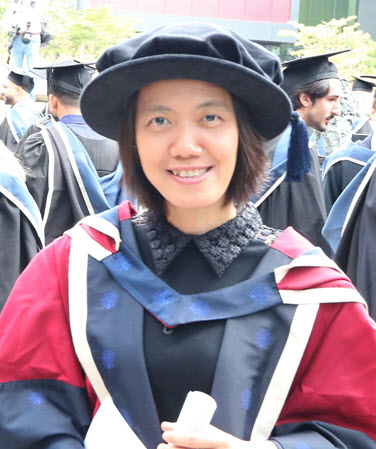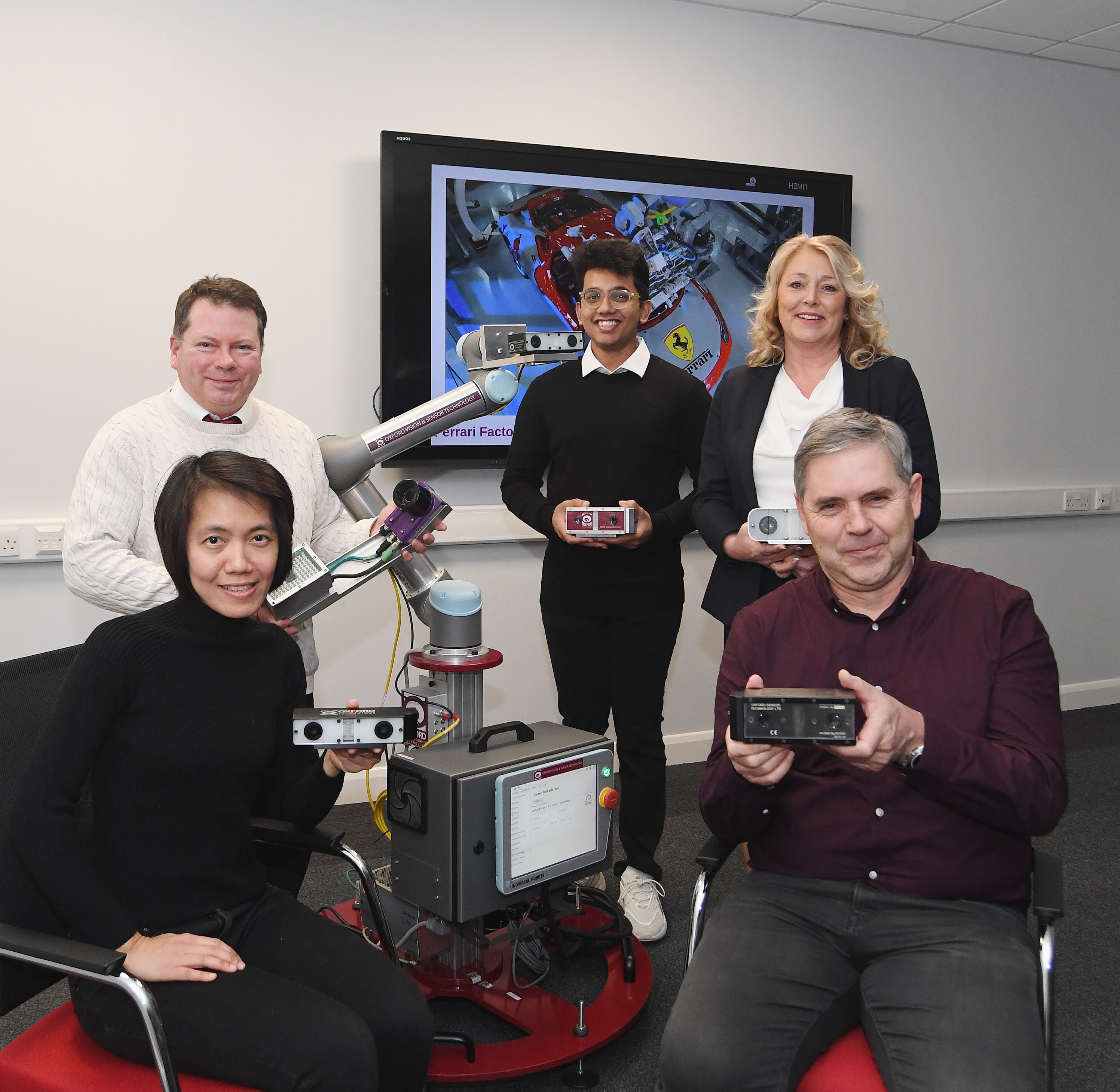Driving automation through STEM education in Thailand
Access to a sufficiently broad range of education opportunities contributes to the Academy’s strategic goal of creating an inclusive society. In Thailand there is a recognition that a lack of education and training on the application of machine vision in real-world manufacturing settings is hindering the technology’s adoption. To address this, Dr Supmak and her team are setting up a collaborative project between Coventry University, universities in Thailand, and Oxford Vision & Sensor Technology (OVST).

Machine vision education
Dr Supmak is the CEO of OVST, which specialises in designing and manufacturing 2D and 3D machine vision and robot guidance systems. Its unique 3D sensors feature intellectual property developed at the University of Oxford. The company has worked extensively on leading international projects with companies such as Jaguar Land Rover, Aston Martin, Ford, Maserati, and Ferrari.
Committed to revolutionising professional technical training, Dr Supmak and OVST have introduced a groundbreaking online platform called OVST EdTech. This innovative solution addresses the challenges of cost and limited availability of automation professionals by combining self-directed study, real-world simulator practice, and authentic automation design projects to be deployed in manufacturing settings.
By integrating OVST EdTech with a comprehensive automation package comprising sensors, software, simulators, and digital format designs, students gain a unique opportunity to learn, develop and directly implement their automation applications using industrial-grade hardware within manufacturing environments.
Incorporating industrial knowledge in education in Thailand
OVST had an opportunity to present their capabilities to managers and engineers at Ford's Thailand plant and discovered significant potential for automation technologies in the Thai market and beyond. They also engaged in fruitful discussions with several universities in Thailand about integrating modern automation technology into their course curriculums. These meetings have highlighted the importance of incorporating industrial knowledge into academic studies. However, one challenge hindering adoption is the lack of education and training on their application in real-world manufacturing settings. To address this, OVST is undertaking this DIA programme supported collaborative project with Coventry University and universities in Thailand.
The aim of the STEM knowledge transfer project is to enhance STEM education by combining academic learning with industrial experience. By bringing manufacturing technologies and industrial expertise into classrooms, this initiative will bridge the gap between academia and industry. Collaboration between universities and OVST, supporting the DIA programme’s objectives, will enrich the course curriculum and provide students with practical insights and experiences. Additionally, further outreach to other UK and Thai universities will be pursued to maximise the project's impact.

Over the past few years, students who participated in this project have experienced great career opportunities even before graduating. This clear correlation highlights the positive impact of our project in helping students achieve their career goals.
Collaborator benefits
Dr Supmak’s collaborators at Coventry University bring research experience to OVST EdTech, an advanced online learning platform in the field of industrial automation, featuring cutting-edge simulators. Their students have also been valuable additions to the project, contributing their expertise and skills. The project has yielded remarkable results, with students from Coventry University achieving notable practical achievements and recognition. Over the past few years, students who participated in this project have experienced great career opportunities even before graduating. This clear correlation highlights the project’s positive impact in helping students achieve their career goals.
Dr Supmak is passionate about contributing to the academic community and supporting students in their career journeys. Her vision for the project aligns with the Academy's strategic goals to use engineering to enable a more equal and sustainable society. She hopes the project will extend beyond its timeline, with the online learning platform expanding to reach a wider academic community through the Royal Academy's network. This commitment ensures continued contributions to the academic community beyond the award period, fostering knowledge transfer and collaboration between UK and Thai universities.
Related content
DIA awardees
Distinguished International Associates (DIA) are international engineers working across all sectors. They work at the c…
FAQ
Information and answers to common queries about the Distinguished International Associates (DIA) Programme
